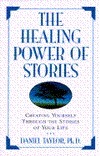
Momma and the Meaning of Life: Tales of Psychotherapy
Book Description
What if the keys to understanding life and death lay hidden in the stories of those who sought help? "Momma and the Meaning of Life" invites you on an extraordinary journey through the mind of renowned psychiatrist Irvin D. Yalom, where the therapeutic process unfolds like a gripping film. With raw honesty, he shares intimate tales of patients grappling with their innermost fears and desires, each story revealing profound truths about love, loss, and the quest for meaning. As the clock ticks, and the stakes rise, what insights will emerge from these soul-stirring experiences?
Quick Book Summary
In "Momma and the Meaning of Life: Tales of Psychotherapy," psychiatrist Irvin D. Yalom invites readers into the intimate world of psychotherapy through six unique tales drawn from his practice. Blending storytelling, psychological insight, and personal reflection, Yalom explores the complexities of the human mind and the universal search for meaning. The book moves beyond clinical detachment, delving deep into therapist-patient relationships, the shadow of mortality, and his own struggles with vulnerability. Through stories that are at times poignant, humorous, and unsettling, Yalom unravels the intertwined threads of love, death, and healing, offering both professionals and lay readers a moving meditation on what it means to be human—and how therapeutic connection can illuminate the deepest corners of our lives.
Summary of Key Ideas
Table of Contents
The Healing Power of Human Connection
Yalom opens the book with deeply personal reflections, using the titular story to explore his relationship with his own mother and the ways it has influenced his work as a psychotherapist. He challenges the traditional boundaries between therapist and patient, emphasizing that healing often occurs within the dynamic, honest exchanges between two people. Yalom uses humor, candor, and emotional honesty to highlight the importance of authentic human connection as the cornerstone of effective therapy.
Confronting Mortality and the Fear of Death
Throughout the narratives, Yalom addresses the omnipresence of death and how the fear of mortality shapes both patients and therapists. He explores existential crises patients face, ranging from terminal illness to the paralyzing anxiety of nonexistence. By courageously sharing these stories, Yalom demonstrates that openly confronting death can lead to profound insights, allowing individuals to live richer, more meaningful lives.
Self-Disclosure and the Therapist's Vulnerability
An ongoing theme is the therapist’s own vulnerabilities and struggles. Yalom does not shy away from disclosing his insecurities, failures, and evolving understanding of his role. He argues that an effective therapist is not an all-knowing expert but a fellow traveler who is also searching for meaning. These admissions create space for trust and genuine healing, as patients can sense when a therapist is authentic and deeply engaged in their shared journey.
Unraveling the Past to Understand the Present
Many stories center on how past traumas or unresolved relationships continue to haunt patients in the present. Through skillful and compassionate exploration, Yalom helps patients identify and reinterpret these experiences, transforming suffering into self-awareness and growth. By unraveling the past, patients find new pathways forward, underscoring the value of revisiting and making sense of formative events and connections.
The Transformative Nature of Storytelling in Therapy
Yalom’s book demonstrates that therapy itself is a form of storytelling—where the act of narrating, listening, and jointly constructing meaning can be transformative. Through the stories he shares, both within and about his patients, Yalom reveals that the search for meaning is universal. He underscores the essential role that narrative plays in healing, not only for those in therapy but for anyone seeking understanding in the midst of life’s inevitable uncertainties.
Download This Summary
Get a free PDF of this summary instantly — no email required.





